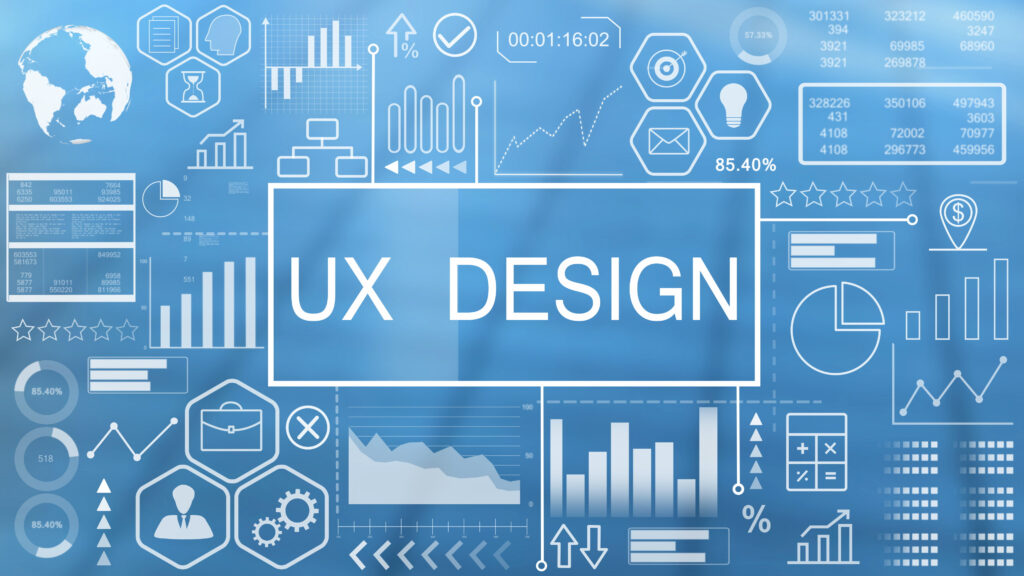In the ever-evolving landscape of digital experiences, user experience (UX) remains the cornerstone of successful website design. As we journey into 2024 and beyond, staying ahead of emerging trends and technologies is crucial for designers and businesses alike. Let’s delve into the anticipated UX trends that will shape website design in the years 2024, 2025, and 2026.
Hyper-Personalisation
In 2024 and beyond, users expect websites to anticipate their needs and preferences. Hyper-personalization goes beyond basic customisation; it leverages advanced data analytics and AI to deliver tailored experiences in real-time. Websites will dynamically adjust content, layout, and recommendations based on user behaviour, demographics, and even emotional cues.
Voice User Interfaces (VUIs)
With the growing popularity of virtual assistants like Siri and Alexa, VUIs are becoming integral to UX design. By 2025, websites will incorporate voice commands and responses to enhance accessibility and convenience. Designers will need to optimise interfaces for voice interaction, ensuring seamless navigation and comprehension.
Augmented Reality (AR) Integration
As AR technology matures, it will revolutionise the way users interact with websites. By overlaying digital elements onto the physical world, AR enhances product visualisation, virtual try-ons, and immersive storytelling. In 2026, expect to see more websites integrating AR features to engage users and drive conversions, particularly in e-commerce and entertainment sectors.
Minimalistic Design with Micro-Interactions
Embrace the timeless principle of simplicity in UX design, enhanced by the power of micro-interactions. In 2024 and beyond, minimalism is elevated with subtle animations and feedback mechanisms, adding depth to user interactions. Take inspiration from Google’s hover effects and loading animations to delight users and enhance usability. Discover the magic of micro-interactions in your website design.
Dark Mode Optimisation
In recent years, dark mode has become increasingly popular among users of various devices and applications, thanks to its visually appealing design and the potential energy savings it offers. As we look ahead, it is expected that websites will place a greater emphasis on optimising their dark mode feature to provide users with a comfortable viewing experience, particularly in low-light environments. Sydney designers, in particular, will need to strike a careful balance between contrast and readability to ensure that the content remains accessible and legible in both light and dark themes.
Inclusive Design Practices
Accessibility should be at the forefront of every UX designer’s mind. In 2024 and beyond, inclusive design practices will be non-negotiable, ensuring websites are usable by individuals of all abilities. From keyboard navigation to screen reader compatibility, designers must prioritise accessibility features to create equitable digital experiences.
Ethical UX
As technology continues to permeate every aspect of our lives, ethical considerations in UX design will become increasingly important. Designers will be tasked with balancing business goals with user privacy, data security, and societal well-being. Transparency, consent-driven interactions, and responsible data stewardship will be paramount to building trust and loyalty among users.
Multi-Modal Experiences
In the multi-device era, users expect seamless transitions between platforms and channels. Multi-modal experiences integrate voice, touch, and gesture inputs across devices, offering users flexibility and continuity in their interactions. Whether switching from smartphone to smart speaker or from desktop to augmented reality headset, websites will adapt to accommodate diverse user preferences.
As we look ahead to 2024, 2025, and 2026, the future of UX in website design is both exciting and challenging. Embracing hyper-personalisation, emerging technologies, and ethical principles will be essential for staying competitive in the digital landscape. By prioritising user needs, inclusivity, and innovation, designers can create websites that not only meet expectations but exceed them, delivering memorable experiences that resonate with users for years to come.
